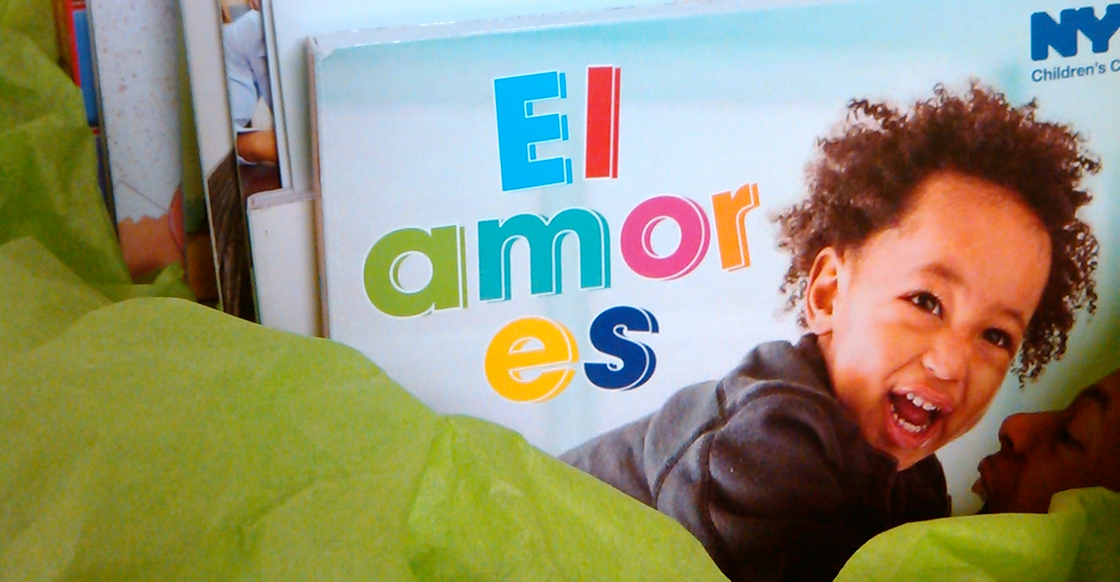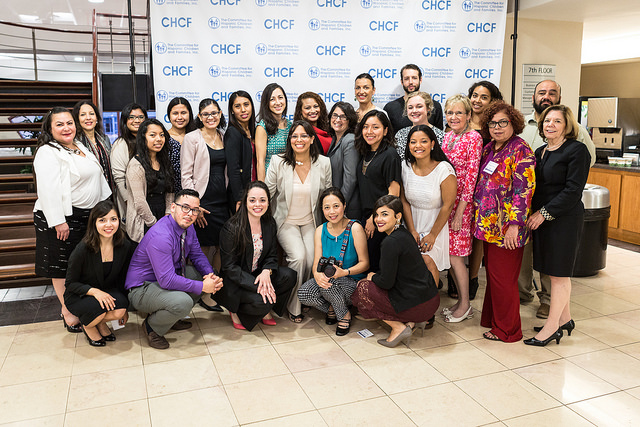Saturday, January 30th, 2016 the Committee for Hispanic Children and Families (CHCF) hosted a Spanish-language Tax & Affordable Care Act (ACA) Clinic for family child care providers, assistants and substitutes. Providers from all five boroughs were in attendance.
Empire BlueCross BlueShield and H&R Block, event sponsors, offered presentations in their areas of expertise, informational tables and individual consultations.
Empire BlueCross BlueShield explained that the Affordable Care Act (ACA) requires all citizens and legal residents of the United States to obtain health insurance or be subject to penalties. They also shared that there are expanded options for children under the age of 19 years.
H&R Block’s presentation highlighted that a significant portion of expenses incurred by family child care providers are tax deductible; the deductible portion is determined by a mathematical formula that factors in the hours and space used for business.
Scholastic donated books for all attendees as well as a basket full of children’s books (in English and Spanish) and resources on the development of literacy in early age that was raffled as a door prize. Congratulations to Yeimi Reyes who was the winner!
Family child care providers operate independently and the opportunity to interact with other family child care providers is limited. The clinic offered the opportunity to share resources and network with other child care business owners. As business owners and licensed family child care providers, there are shared challenges and experiences, and CHCF is proud to offer this chance on an annual basis to learn from one another.
These kinds of events targeting family child care providers are rare, and even moreso for providers who speak Spanish. CHCF is at the forefront of advancing this sector and aims to continue offering opportunities like these, in a space where providers of child care services may congregate for professional development, support and connection with other child care business owners.


